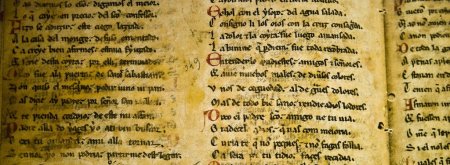Studying ... History?
When people asked me what I studied at university and I told them, there were often a number of generic reactions. Inevitably, I would be told of their own experience of History at school, either that they found it really boring, or that they really enjoyed it but felt that they needed to study something more useful.
Often people would question the vocational value of my subject, and either ask what I was going to do with it once I had finished, or phrase it more presumptuously and ask if I was going into teaching. When they would find out that I had no plans to control a classroom of ill-behaved children while trying to instruct them in what my parents once knew as current affairs, questions would fly in about my future plans, and many tried – in vain – to be helpful by scouring their brains to think of useful paths for one educated in History.
Apparently I could be an archaeologist for example, or a museum curator. And so I trudged through my university years, increasingly influenced by the messages I received that my subject was of questionable vocational value, and indeed of little value to society, unlike more noble degrees such as Medicine or Education. This is why I still have to pinch myself when I discover how big a part the study of history has to play throughout the Bible.
History in the Bible
It was a history text that King Ahasuerus read when he couldn’t get to sleep in Esther chapter 6 and decided to honour Mordecai for his recorded deed, thus flummoxing Haman’s plan to utterly rid the land of Jews. It was when the historic Book of the Law was found (how can you lose something like that!) in 2 Kings 22 that a 26 year old Josiah led his people back to the ways of LORD through a series of reforms. And in Exodus 1, it was because a new Pharaoh was not educated in Joseph’s great deeds 400 years earlier that he lost respect for the descendants of the man who had once saved Egypt from famine, and trafficked them into slavery.
If anyone who claims to be a student of history is rejecting Jesus Christ, then for sheer intellectual credibility they need to know what it is they are rejecting.
And it’s not just accounts of history’s value which appear in the Bible, but whole historic texts make up books like Kings and Chronicles. I’ve never met anyone who studied Wisdom Literature or Prophecy, so I’m delighted that out of the commonly identified genres of the Bible, I spent three years studying one of them. God places history as a key genre in his Bible, aware that by remembering his works, his people are more likely to remember their covenant. Repeatedly when speaking to the Israelite people, he says "Remember, I am the LORD your God who brought you out of Egypt, out of the land of slavery." God wants the Israelites to remember his deeds through history, so that they will come to him in worship and out of love. In Deuteronomy 4, Moses thrice pleads with the people neither to forget nor to twist events of history, so as to pollute or dilute their worship of Yahweh. In verse 32 he encourages them to scour the annals of history to see if there has been anything quite as amazing as God’s covenant relationship with them.
As I read through the Bible and discover God’s use of history in its writing, and instances of how chronicles of history have been used to play a part in his plan of salvation, I am encouraged. Because although those around me have often questioned the value of History, I know that God values it, and that he values me.
The Value of History to the Christian
And those skills that History teaches have helped me in my walk with Jesus. The reading of sources allows me to go beyond cynicism and question religious writings and their claims for biblical basis. My subject’s quest for truth and answers equips my evangelism and helps me disarm those who say in blasé fashion that truth is subjective. The logic that history requires of me helps me form my own convictions on the ‘reason for God’.
And whether they know it or not, all Christians benefit from history and its students. We ought to be grateful to those people who have verified the authenticity of Jesus’ existence through the works of Josephus and other contemporaries, to those corresponding texts that let us know that Cyrus of Persia really did release the Israelites, and to those fragments of parchments that slay accusations that the Bible has changed over time like some unending game of Chinese whispers. We can better appreciate the richness of Christ’s parables when we learn from those students of history who tell us the value of a denarius and who inform us that the instance of the prodigal son’s father running wasn’t in keeping with cultural norms. The Levitical laws can be seen in the context of the times when those who have studied ancient texts can tell us that some pagan worship involved boiling a goat in its mother’s milk.
Studying History as a Christian
Does being a Christian affect my study of history? As truth-seeking, loving-him-with-our-minds followers of Jesus, I would say that it certainly does. Are you being guided by your sources when you’re writing your argument, or are you seeking the sources which fit around the point that you want to make? Are you being economical with the truth and making someone say something they didn’t by quoting them out of context? Are you being truthful when you compile your bibliography, or simply reciting the reading list along with a few books you would like to have read?
Are you seeking out and making the most of opportunities to encourage your fellow students to ask questions of God as he encourages in Deuteronomy 4? Are you enticing them to meet with you to investigate the claims of Jesus in the most remarkable history document of all time? We don’t usually dismiss or praise films or books without watching or reading them. And likewise, if history students are going to dismiss the claims of Jesus Christ, shouldn’t they at least investigate the chief primary source material available to us? If anyone who claims to be a student of history is rejecting Jesus Christ, then for sheer intellectual credibility they need to know what it is they are rejecting. So why not invite them to take the time to read the primary source material, the four short biographies available about him in the Bible, and ask questions with the aim of drawing out some conclusions based on investigation, not just on speculation?
So, fellow History student, I charge you to hold unquenchably to the truth of Jesus, confident in its historical credibility, urgent in exposing others to his love.
Book Recommendations
Gordon Fee and Douglas Stuart, How to Read the Bible for All its Worth (Zondervan, 2003)
Rebecca Manley-Pippert, How to Lead a Seeker Bible Discussion (IVP Connect, 2003)
© 2011 Robin Peake



